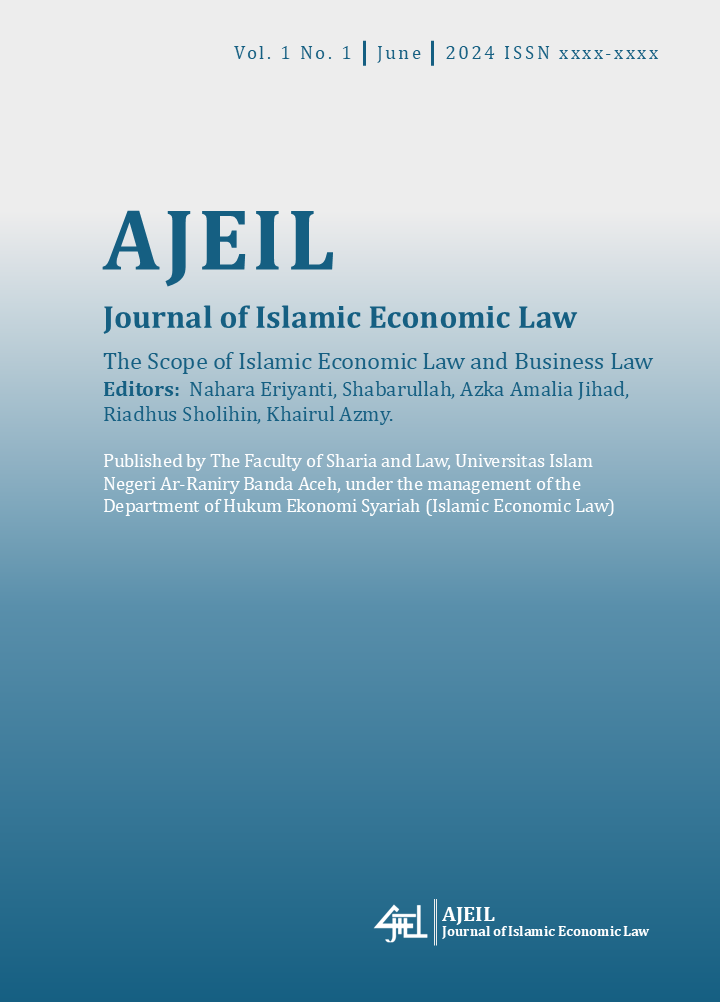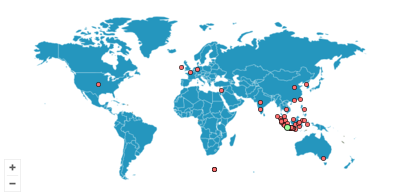Implementation of DSN-MUI Fatwa Number 108/DSN-MUI/X/2016 concerning Halal Tourism at Tuan Tapa Tourism, South Aceh
Keywords:
Aceh Halal Tourism, FATWA DSN-MUI, Indonesian Wonderful, Tuan Tapa, South AcehAbstract
The National Sharia Council of the Indonesian Ulema Council (DSN-MUI) issued Fatwa No. 108/DSN-MUI/X/2016 on Guidelines for Tourism Organisation Based on Sharia Principles. The substance of the fatwa regulates the criteria for tourism objects that are in accordance with sharia principles. Tuan Tapa tourist attraction is the most visited tourist destination in South Aceh, but in practice there are still activities that are contrary to the values of Islamic law, even though Aceh is an area that is given authority in terms of implementing Islamic law without exception in the tourism sector. This research examines how the implementation of Fatwa Number 108/DSN-MUI/X/2016 concerning Guidelines for the Implementation of Tourism Based on Sharia Principles. This research uses qualitative methods and descriptive analysis approaches, with data collection techniques namely interviews, documentation, and questionnaires. The results of the study that, Implementation of halal tourism at Tuan Tapa tourist attraction has not fulfilled the general principles of halal tourism as described in Fatwa DSN-MUI Number 108/DSN-MUI/X/2016, based on the results of the study there are still found persugihan practices that lead to shirk, in addition to the practice of persugihan, there are still tourists who do not maintain worship obligations while travelling, there are still tourists who do activities when Friday prayers are held, and Tuan Tapa tourist attraction there are still young tourists who do khalwat actions.
References
Adenisa A. R. 2020. The Potential of Natural Resources in Developing the Tourism Sector in Indonesia. National Journal of Tourism, Vol 12 No. 1. p 1.
Al-Fitri, J. 2019. The Legal Authority of Fatwa of Indonesian Ulema (MUI) from the Perspective of Indonesian Legislation. Court Article, p.4.
Aziz, F. 2017. "Formula of Religious Maintenance (Hifdu Al-din) in Jepara Village Community: Implementation of Maqasid Al-Shariah with Anthropological Approach", Al-Ahkam Journal, p.89.
Bogong, S. 2005. Social Research Methods. Jakarta: Kencana. p.56.
Darul Wathan Scientific Department, Ethics of a Muslim (Jakarta: Darul Haq, 2008) pp. 23.
Djakfar, M. 2017. Halal Tourism Multidimensional Perspective Roadmap Towards Academic Development & Halal Industry in Indonesia, Malang, UIN-MALIKI PRESS. p.128.
Fatwa DSN-MUI Number 108/DSN-MUI/X/2016 concerning Pariwiasata Guidelines Based on Sharia Principles.
DSN-MUI Fatwa Number 113/DSN-MUI/I/IX/2017 concerning Akad Wakalah Bi Al-Ujrah.
Jauhar, A. A. H. 2009. Maqasid Al-Shari'ah, Jakarta, AMZAH, p.91.
Nasution, M. S. A. 2013. Philosophy of Islamic Law. Jakarta, RajaGrafindo, p.128.
Nunung. 2009. Selayang Pandang Nanggroe Aceh Darussalam, Intan Pariwara, Klaten, p.35.
Pitana G. and Diarta K.S. 2009. Introduction to Tourism Science, PT Andi Offset, Yogyakarta.
Pratiwi. 2016. Analysis of Sharia Tourism in Yokyakarta City", Journal of Tourism Media, Vol 14 No 1.
Aceh Qanun No. 8 Year 2013 on Tourism.
Rahmadhani. 2014. Towards a Disaster-Based Aceh Tourism Industry (Banda Aceh: Aceh Tourism Culture Office, p.2.
Safrilsyah, Fitriani. 2014. Religion and Environmental Awareness. Substantia Journal. p.45.
Syaiful, S. 2012. Ethics & Morality in Education: Opportunities and Challenges. Jakarta: Kencana, pp. 13.
Zainuddin, A. 2010. Legal Research Methods. Jakarta: Sinar Grafika. pp. 75.
Downloads
Published
Issue
Section
License
Copyright (c) 2024 AJIEL - Ar-Raniry Journal of Islamic Economic Law

This work is licensed under a Creative Commons Attribution-ShareAlike 4.0 International License.












